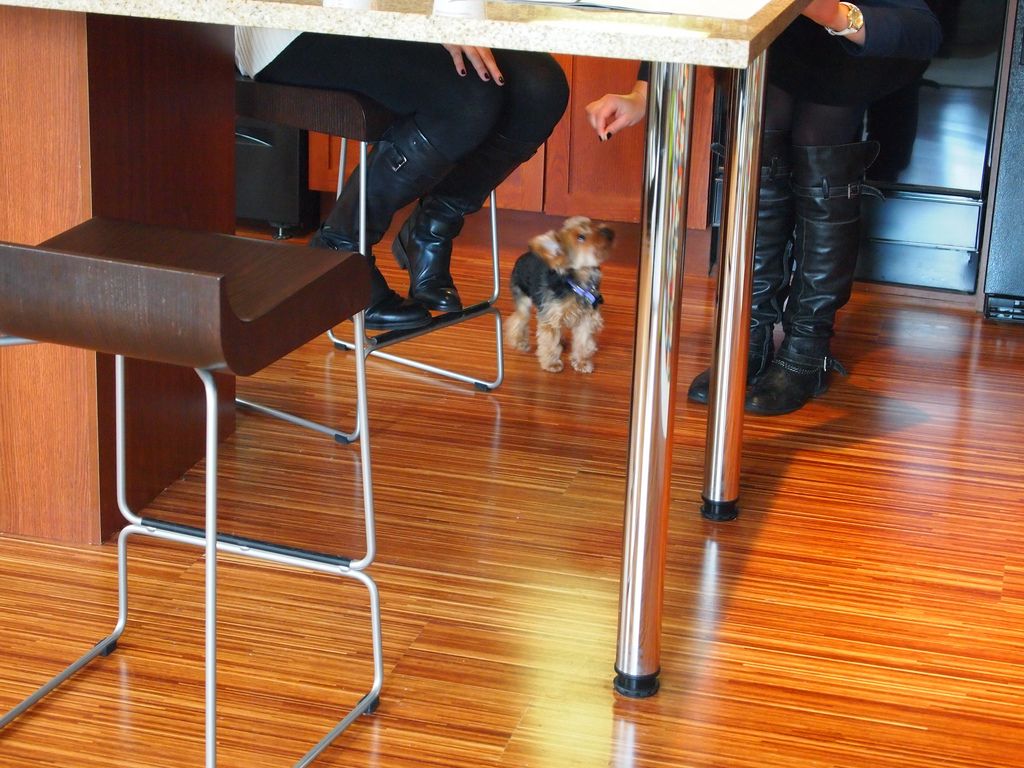Welcome to our weekly 'Ask a Vet from the SF SPCA' feature on 7x7.com. Dr.Jeannine Berger, DVM, DACVB is a board certified veterinary behaviorist who counsels guardians whose pets’ issues are beyond the scope of training. Think of her as a pet shrink…at your service. Ask your own questions in the comments!
Q: I'm a SF renter with pets. What can I do to make sure I get my deposit back?
A: San Francisco can be a challenging place to find housing – with or without pets. We see a lot of animals surrendered to shelters because of housing issues. On our website, we have Guidelines for tenants and guidelines for landlords to help ease the issues and hopefully find common ground from which to negotiate having a pet. We want you to be able to find pet friendly housing and get your deposit back when you move. Big picture, we want landlords to be satisfied with the arrangement so that they will continue to allow pets in their properties. Pay it forward, my friends!
Depending on the place your rent, a pet deposit can be a substantial amount of money. To avoid forfeiting your deposit, consider these tips.
Steps you should take:
- Make sure to notate any damage from previous pets when you do your pre-move in walkthrough.
- Make an agreement for the pet deposit. Be specific about the terms. You can find a sample agreement here.
- Address common problem number 1 (and number 2, for that matter). Reinforce pottie training or litterbox training when you move in. The change of environment may necessitate a refresher with positive reinforcement:
a. Plenty of scheduled opportunities to go outside to eliminate and finding the appropriate litter box conditions for your cat
b. If you are using pads for your dog, place them in an area that is easily cleaned should your dog miss the pad (tile, not hardwood or carpet)
c. Clean all soiled areas immediately. Use an enzymatic and bacterial combination cleanser cleaner – this is very important because the odor of urine draws pets back to previously soiled areas
d. If your dog or cat develops a house soiling problem contact your veterinarian - it might be a medical problem that causes your pet to soil inappropriately
e. DO NOT punish your pet for house soiling as this will not cure the problem and will likely make the behavior worse
- Destructive behaviors
a. Mental and physical stimulation: it is important to exercise your pet appropriately to age and breed needs. See last week’s post about puzzle feeders and toys. If you don’t have the time you might want to hire a dog walker or bring your pet to doggy day care. Mental stimulation is just as important as physical stimulation: leave your pet with plenty of food dispensing toys and hide or rotate these toys to make it more interesting for your pet. You should have realistic expectations how long your pet can be left at home without supervision.
b. Confinement to a pet safe area – x-pen, pets safe room, baby gates, crate train your pet
Before you move out:
Move your pet to the new home as early as possible – this is will allow your pet to get acclimated to the new place, but more importantly allows you to clean and assess the home and start repair if needed early.
Clean all carpeted areas with a steam cleaner and clean all hardwood floors with a high quality product twice.
Take out your pictures and videos from when you moved in and compare. Find any damages caused by your pet and either repair or discuss with your landlord whether it is cheaper to get repaired or replace it.
Use a disinfectant spray on surfaces and leave air fresheners out in every room prior to moving out. A clean-smelling apartment can help show the efforts you have taken to keep everything clean and neat.
When you move out, have your pictures and video from you initial assessment ready in case there is any dispute. If you are liable for any costs, be sure get the agreed upon amount in writing.
Related Articles
